
Exposé Online
What's old
Exposé print issues (1993-2011)
- 1 (October 1993)
- 2 (February 1994)
- 3 (May 1994)
- 4 (August 1994)
- 5 (October 1994)
- 6 (March 1995)
- 7 (July 1995)
- 8 (November 1995)
- 9 (March 1996)
- 10 (August 1996)
- 11 (February 1997)
- 12 (May 1997)
- 13 (October 1997)
- 14 (February 1998)
- 15 (July 1998)
- 16 (January 1999)
- 17 (April 1999)
- 18 (November 1999)
- 19 (May 2000)
- 20 (October 2000)
- 21 (March 2001)
- 22 (July 2001)
- 23 (December 2001)
- 24 (April 2002)
- 25 (September 2002)
- 26 (February 2003)
- 27 (August 2003)
- 28 (December 2003)
- 29 (April 2004)
- 30 (September 2004)
- 31 (March 2005)
- 32 (September 2005)
- 33 (May 2006)
- 34 (March 2007)
- 35 (January 2008)
- 36 (October 2008)
- 37 (July 2009)
- 38 (July 2010)
- 39 (Summer 2011)
Features
Of Ants and Tools —
The Miriodor Interview 1994
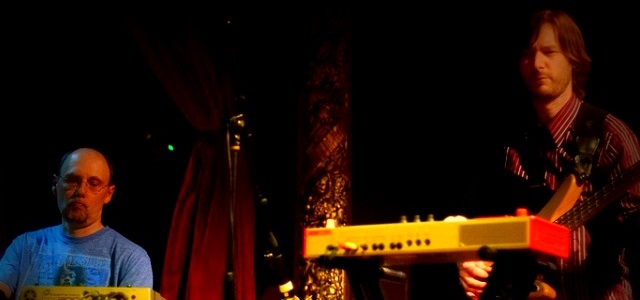
Downtown Montréal. An old ten-story commercial building. The smell of factory. An antique elevator going up to the eighth floor. Miriodor's practice local is spacious, two walls filled with large windows giving a wide north-eastward view of the city. The sun floods in. Drumset, keyboards, hardware paraphernalia, a table, chairs, teapot and cups, a sink and counter plus various posters furnish the surroundings.
by Alain Lachapelle, Published 1995-03-01
Miriodor are Pascal Globensky on piano and keyboards, Sabin Hudon on saxophone and synths, and Rémi Leclerc on drums and synths. Recently, a fourth member joined in, Bernard Falaise, on electric guitar. Miriodor has made, to this date, three albums and two cassettes. They are currently working on their fourth album for Cuneiform Records. Their music is an interesting blend of RIO influences and melodic approach. I chatted with Pascal and Rémi. This is the very first full-length interview they've given. We talked about influences, the role of improvisation, their upcoming disc featuring a new member, the role of technology, among other things.
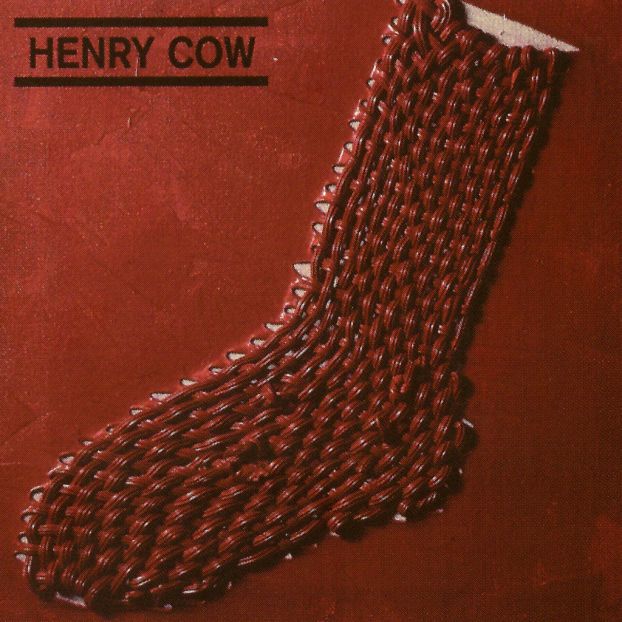 Let's start with your influences.
Let's start with your influences.
Pascal: They are pretty much diverse. As for me, I've listened to a lot of progressive rock in the seventies, mainly King Crimson and Van Der Graaf Generator. Following this, the RIO section came into focus, bands like Henry Cow, Von Zamla, Univers Zero, Aksak Maboul, and Stormy Six.
Rémi's influences are more varied. Adding to progrock, he's also fluent in jazz, contemporary and concrete music. His playing is strongly jazz-influenced, thus giving a detailed drumming in the Canterbury style.
Rémi: Recently I've listened to a lot of rock and popular music like what we see on video clips, stuff like that, although maintaining a selection... Soundgarden, for instance.
You find something of interest in their music and/or the drum material in there?
R: At the level of the drum playing. Also about musical ideas at the production's level. How an idea is rendered. The accuracy. Oftentimes in these productions there's an ample budget. They can spend a long time in the studio. If they want to work on the snare drum's sound for a week, they can do it. It represents a nearly ideal situation, almost utopic. You know, when you arrive in the morning carrying the drum set... You get it upstairs, you set it up, make the first soundchecks and bang, you have to go for the first track, then the second, so on so forth. It makes for long work days. By the end it becomes a bit hard to maintain a constant energy at the inspirational level.
Sabin Hudon's influences are less precise. He seems to be quite neutral, having listened equally to various styles, when he was indeed listening to music that is, as it's not a frequent activity.
P: I can't really say that he has specific influences and mind you, it's been 11 years I’ve known him now. Bernard Falaise, the band's new member who joined in about a year ago, has varied influences. He has listened to progressive rock and hard rock as well, and he studied in musical analysis, hence was exposed to a wide range of styles, from rock to jazz to classical.
 Are these influences showing up when sketching compositions?
Are these influences showing up when sketching compositions?
P: I imagine it's almost impossible for them not to show up. Our goal is to transcend these influences. I dislike it when I listen to a new band's disc and I'm able to quote the origin of a musical passage from, for instance, an old ELP album. From the reviews, Miriodor's material was compared to some bands, though, these references being flattering since they are bands and artists we like a lot: National Health, Hatfield and the North, a little bit of the Canterbury scene, sometimes we were also compared to Frank Zappa and Nino Rota (soundtrack composer for Italian director Frederico Fellini), a little bit of King Crimson and a little bit of VDGG also shows up.
1980, Quebec City, 200 miles north of Montréal. Miriodor began by the meeting of Pascal and Francois Emond (violin, flute, synth). Around this compositional core were grafted more musicians, eventually leading to a stable formation by the end of 1983, the six-musician band that made up the line-up for their first LP, Rencontres (Meetings).
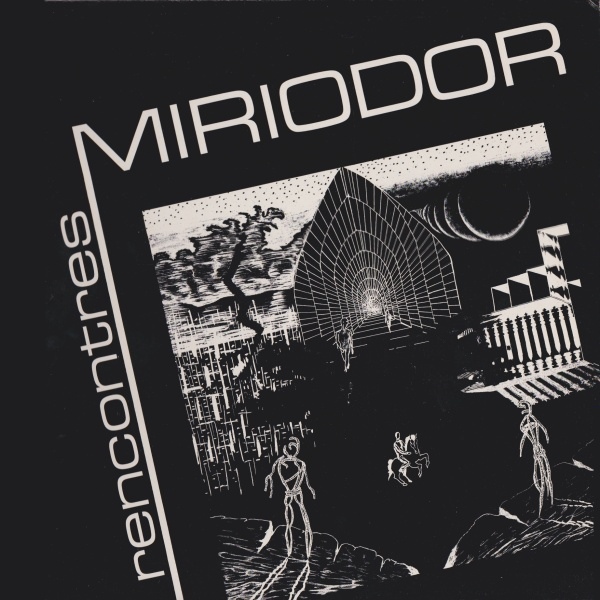 So it started out on a basis of piano and violin?
So it started out on a basis of piano and violin?
P: Yes. Although Francois is a multi-instrumentalist, he concentrates on violin and flute, and plays quite a good piano. He also plays some clarinet, sax, and xylophone. He's one of those people who possess a natural musical talent. The first album comes from tapes we made for ourselves, recorded in Rémi's folks' basement, where we were also practicing. They were the early 4-track experiences. There was no idea at all, at that time, to make an album. The opportunity came afterwards. At one point half of the band moved to Montréal, while the other half stayed in Quebec City. Sabin, Rémi and Francois thus moved, and I followed them six months later. This gave birth to Miriodor as a quartet. And in Montréal we found out about the possibility of making an album. We gave a few concerts in Quebec, some in Montréal.
This first album was on the Cuneiform label?
P: No, it was an independent production. Amongst the first contacts we made in Montréal was Chris Cutler, once Henry Cow's drummer amongst other bands. He told us Recommended Records in the U.K. wouldn't issue an eventual album on their own label but, they would gladly distribute it if we came up with one. Even then, without a record deal, such a distribution prospect was interesting. This is what motivated us to make Rencontres. We then continued in Montréal as a quartet, and, following the impact of this first album I started sending cassettes a bit everywhere, one eventually landing at Cuneiform Records. I was told they already had the first album, that they liked it, and that they were interested in releasing an eventual second album. An interesting aspect of the work with Cuneiform is the co-production. We send them the master tapes along with what's needed for the album's artwork and Cuneiform takes care of the pressing, printing, distribution and promotion. Thus, the first album on Cuneiform is the eponymous one — recently re-issued on CD with additional material from the Tôt ou tard (Sooner or Later) cassette. Other material from this cassette should be included on the planned CD re-issue of Rencontres.
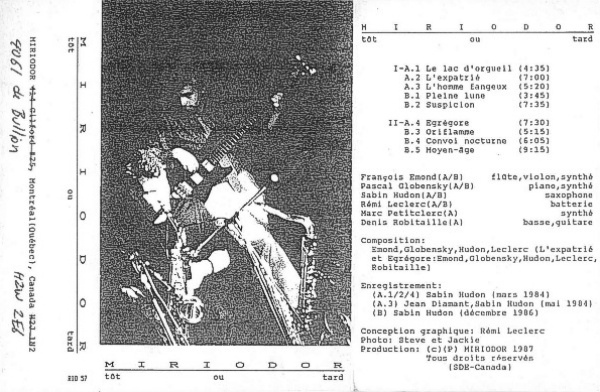 So, with Cuneiform you gained a wider exposure.
So, with Cuneiform you gained a wider exposure.
P: An international exposure. The distribution inside Quebec being rather weak, this distribution gave us additional access to European audiences. Incidentally, our music has a stronger impact on the European market, being a few times qualified of 'Euro-Rock.' Moreover, this new distribution also stretched over to Japan, and the Japanese, being enthusiasts of progressive rock nowadays, got access to our music.
The persistent murmur of the city, of the streets, the cars and the people, is making its way up to us through some open windows. An ambulance's siren starts to wail, like a dopplerized saxophone pleading for urgency.
Do you always manage to keep a place for improvisation?
P: We always try. While in the recording studio we are subject to financial pressures, you know, and we can't go much over the planned budget. Since Miriodor is mainly a compositional band — although there's always a place for improv — we give priority to the written material and, if there's some time remaining, we record some improvisations. If they are good, we keep them. I'd like to point out that when we're doing concerts — not that we're doing a lot now, by all means — there's always a place for collective improvs, at least two or three per concert. We play a few written pieces then we start an improv. "1 2 3 4" — and everyone starts at the same time, without even knowing in which key. We fix ourselves a rendezvous to be back in four to ten minutes. Normally — although there are nights when it's less successful — the audience seeing us for the first time can't make the difference between written material and improvs (smiles). We try to hear ourselves as much as possible and if one evening we all sense a groove taking on, we seize the opportunity to lengthen the piece.
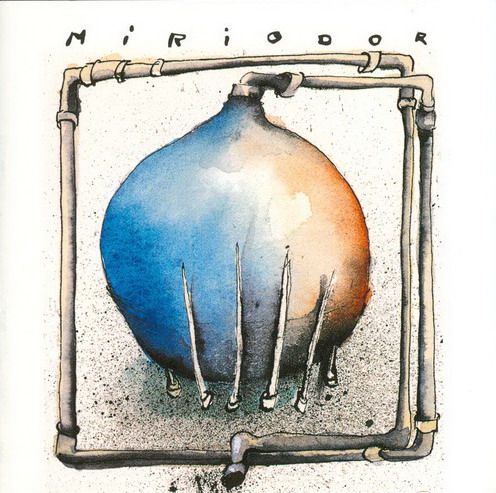 What about "En attendant Rémi / Waiting for Rémi" off your eponymous album?
What about "En attendant Rémi / Waiting for Rémi" off your eponymous album?
P: When we did the first tour for our second album, Rémi had from time to time some technical stuff to work on while on stage. Hence, about midway through a concert we had to give him about three minutes for him to fiddle with equipment. Sabin and I launched an improv, and gave such a title, for obvious reasons.
What is the beauty in improvising?
P: A lot of it is a question of energy, I say. It's the present moment. You have to be there, strong, and you have to keep going forward. At the same time you're playing something you have to think about what you'll be going to play afterwards. There's nothing planned, no partitions before you, it's a question of energy that will put forth the abilities of the individuals, of the musicians.
Are the written compositions, when played in concert, sometimes elongated in order to include an improv of some sort?
P: The tendency is to play them as written. It's rare that we'll add something in a concert situation. On the other hand, what happens more often, is that inside a composition there's usually a solo. This part is free.
R: Sometimes I'll leave some drumming inside a piece a bit vague so it'll adopt a form of energy when played live. Inside a composition I then come up to moments where I have to give more than only plain, note for note, execution. It may happen that sometimes this gives what's more fitting anyhow, which is a good thing for the composition.
Would you see your music as a soundtrack of some sort?
P: I think it'd be a great work experience.
What kind of movie?
R: Animation films.
P: Computer animation.
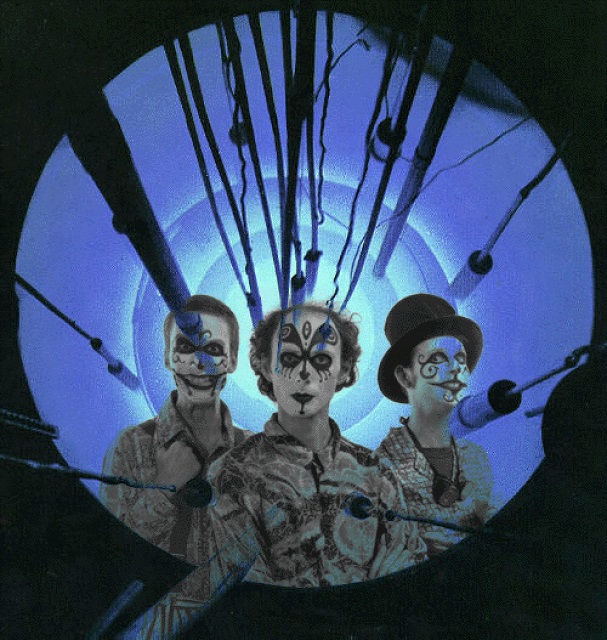 You've mentioned being compared to Nino Rota... Perhaps something with a surreal or slightly absurd atmosphere?
You've mentioned being compared to Nino Rota... Perhaps something with a surreal or slightly absurd atmosphere?
P: There could be some genres that would be more fitting. I don't know, maybe a Bible epic? (laughs) 3ième Avertissement / Third Warning is Miriodor's second album on Cuneiform and their latest to this date. It was very well received in Canada, the USA, Brazil and Japan.
Is there a theme linking the pieces on this disc?
P: There is no concept or theme. Most of the time the pieces come from just about anywhere. It may be that someone brings forth a basis, or it may be a collective creation, or it may also be a total improv. The titles of the pieces are a delicate question, though. As for me, when I arrive with an idea for a piece, I also arrive with a title. Not really aiming at influencing the listener, although maybe giving a hint or two. Miriodor's music is, I think, quite suggestive, sometimes resembling a soundtrack of some sort, a music, for better or for worse, that doesn't need any words. I think titles are there as some kind of guide. Sometimes they are simply for... Well, it's not always obvious to come up with the right title to convey the spirit of a piece. Sometimes the title is only there because we have to use one, while at other times it's based on an anecdote.
What were the reactions to Miriodor's music?
P: We did tour France and Belgium in the spring of 1989, part of a cultural exchange between France and Quebec. We had very good reactions from the audiences. It was even more pleasing since we were virtually unknown, with about one person out of five knowing about our material. We played cafes and such places with seating capabilities of about 200. We also played in Caen, in western France, at a venue containing 600 seats with about 400 occupied. The contact with the public was very nice. I'd say that the public there reacted more in favor of our music than the public here in Quebec. Comments from European critics and reviewers were generally positive.
This European reception to Miriodor motivates them to go back touring again. Although this reaction is very good, touring hasn't been always easy. To my surprise I learned about how hard it can be for foreign musicians to play in the USA.
P: We never toured in the USA. We would like to, especially since our label is American, but it never occurred, so far. Strangely enough, it is harder for musicians to go to the States than to Europe. The USA customs are exerting a tight control over their borders.
R: I went there two times this year with other bands and passing the customs is just about like going to jail. Their attitude shows that they're doing you a favor of letting you in. Lots of papers to fill, lots of questioning. In fact, once with the internationally well-known theater group Carbone 14 it took such a long time to pass the border that I missed a plane I had to take afterwards. The customs employees seem to puzzle about how come an American band isn't doing your music in the first place and why you have to go there to work.
Nevertheless, were you contacted for Progfest 94?
P: Not directly. Steve Feigenbaum, owner of Cuneiform Records and Wayside Music, dropped us a word about it. If we would have been ready and available, it would have been an experience for us. These days we're working hard on compositions for the upcoming album and I must say that in order to be ready for a concert we'd have to practice the older material a bit.
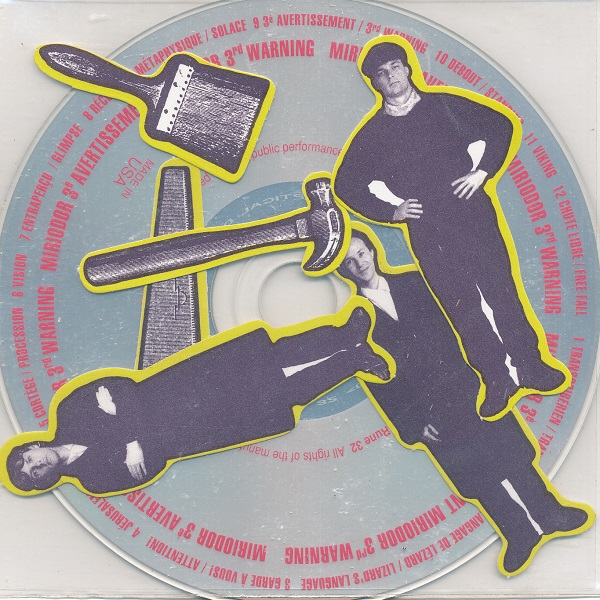 Speaking of working, you are pictured with tools on the 'ever-changing' cover of 3ième Avertissement / Third Warning... Does this represent anything specific?
Speaking of working, you are pictured with tools on the 'ever-changing' cover of 3ième Avertissement / Third Warning... Does this represent anything specific?
P: This is something we talked about between ourselves. Oftentimes we compared ourselves to little workers, almost like working ants in an ant-hill. We are little, working, intelligent mobile units. So, instead of being shown with musical instruments, we preferred tools.
There's something humble in there...
P: Yes, we could say that. It's another approach. 'Humble' is a good representation. 'Marginal,' 'different,' are others.
Miriodor received a few times the assistance of Quebec's Cultural Affairs in the form of grants. During the last six years they received four grants of $4000 each. The first disc, Rencontres, was pressed at 1000 copies and just about every one is now sold. In fact, Pascal is holding on the very few copies left of that LP, for posterity. The second and third disc were pressed in quantities of 2000, with about 200 remaining. Re-issues are planned for 3ieme avertissement / Third Warning. So, the band is generating somewhat a bit of money, bringing them even with what they could invest.
R: It lets us having a working capital. Paying the rent, etc... At the beginning we had to pay for equipment and such. Since some time now we don't have to spend as much. We can say that Miriodor has become autonomous.
You have quite a full sound for a trio. I see Rémi is using MIDI pads. Are these pads used to generate other sounds than of the percussive variety?
P: Yes. He'll be using quite often string, bass, and even piano sounds. At times a groove can settle in at the keyboard and Rémi uses the Octapad with predefined sounds and notes, while maintaining the rhythm. Sometimes the use of MIDI pads is also more technical in nature. For instance, a pad may send a program change to a synth, thus preparing it for an upcoming passage while we all are still playing.
What are your impressions about the role of technology at the compositional level?
P: I prefer to compose using the piano only. It promotes a strict approach that I like. With the available equipment here at the local we sometimes use a multi-track approach. On 3ième avertissement / Third Warning for instance we worked a lot with the computer. It really changes the compositional mode. The role of the computer was sequential as it was used for program changes, for volume control, and others. At the time of that album it was almost a fourth band member. It was an interesting experience. Now we are coming back to a more direct way, stripped down, less complex.
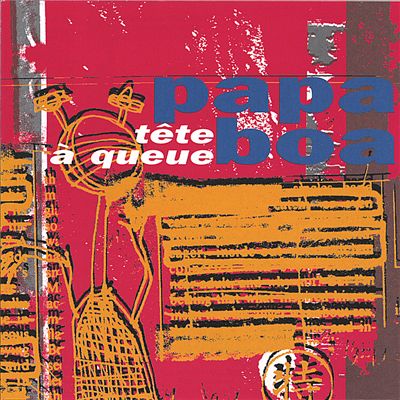 Miriodor now has a guitarist, Bernard Falaise. Rémi and Bernard were once in band called Papa Boa, a bit known in Montréal, having given some concerts. Bernard, since then, heard about Miriodor and showed interest. He joined the band in December 93.
Miriodor now has a guitarist, Bernard Falaise. Rémi and Bernard were once in band called Papa Boa, a bit known in Montréal, having given some concerts. Bernard, since then, heard about Miriodor and showed interest. He joined the band in December 93.
How will this change your music?
P: Hmmm... The presence of the electric guitar, by itself, will add some rockier colours. We still have to see, but it may add a certain accessibility to our music. Apart from our very first album - and even then it wasn't at the forefront — we never had guitar or bass, a bit like VDGG, which is uncommon in the world of rock music. Sabin was at the forefront with his saxophone playing, giving the band a jazzy touch, since, for a lot of people, saxophone is directly linked to jazz. Now, with a guitar, a rock sound will be put forward. There'll be softer moments, but they'll also be intense times, the guitar making solos and general noise. Things people in general are more accustomed to than jazz. Our current project, which will probably be titled Cabaret Circus, will feature a theme, a circus theme with parallels to what the world has become today: some kind of a circus, but with an undertone of "end of the century."
Have you ever considered vocals?
P: So far, our material only featured two pieces with vocals. One on Rencontres and one on the Tôt ou Tard cassette. Yes, there should be some vocals. In fact we'd like to have guest musicians on our next album. We'd like to have violin, cello, trumpet: a larger acoustic palette. Keyboards nowadays are quite fancy but you'll never obtain the subtle playing of a cellist, for instance. Without having standard songs like we find them in showbiz today, there should be two or three pieces featuring vocals. At least we hope we'll be able to do that. The vocals won't be in the forefront, so there won't be a resident singer in the band. At least not for now. The vocals will be both for singing, with and without words. This will entail a difference with the same material performed in concert. We'll be able to adapt live performances depending on the guests present at a certain night.
What is the dynamic inside Miriodor?
R: Compared to other people I've worked with (Andre Duchesne's "Les quatre guitaristes de l'Apocalypso Bar" and Locomotive for instance), Miriodor is unique. We've worked together a lot since the start, while other work, in general, consists of playing what's already defined, inside a scheme. Miriodor, on the other hand, promotes interactivity.
P: Our process is democratic.
R: If Pascal brings an idea I can propose...
P: You can reject it...
R: (laughs) I can reject it, I can transform it into something very different. The compositions are credited to the three of us, even if at times there could be a specific origin. We are putting forth group work.
P: For instance on the second album, Rémi only plays but a little bit of cymbals on "En attendant Rémi," but the piece is still credited to us all. This will prevail with the upcoming album. It's nice that everyone has something to say. It gives a pleasant attitude.
Cabaret Circus will be recorded by March 1995. It'll be released at a later time on Cuneiform Records. I left the local hearing a flight of saxophone notes backed by a strong guitar playing in those harmonies dear to Miriodor. The old elevator going down, the newsstand in the lobby, the Algerian restaurant on the right, the streets of Montréal. It was an autumn day, the air was pregnant with transformations.
[The 1995 album was eventually called Jongleries Élastiques. - ed.]
Filed under: Interviews, Issue 6
Related artist(s): Miriodor, Bernard Falaise, Pascal Globensky
What's new
These are the most recent changes made to artists, releases, and articles.
- Review: Steve Tibbetts - Close
Published 2026-02-28 - Release: We Stood Like Kings - Pinocchio
Updated 2026-02-27 19:24:02 - Release: Stephen Grew - Pianoply
Updated 2026-02-27 19:20:11 - Release: Thierry Zaboitzeff - Artefacts
Updated 2026-02-27 00:16:46 - Review: Kevin Kastning - Codex I & Codex II
Published 2026-02-27 - Release: Zan Zone - The Rock Is Still Rollin'
Updated 2026-02-26 23:26:09 - Release: The Leemoo Gang - A Family Business
Updated 2026-02-26 23:07:29 - Release: Ciolkowska - Bomba Nastoyashchego
Updated 2026-02-26 13:08:55 - Review: Immensity Crumb - Chamber Music for Sleeping Giants
Published 2026-02-26 - Release: The Gatekeepers - Diary of a Teenage Prophet
Updated 2026-02-25 15:55:58 - Review: Mars Lasar - Grand Canyon
Published 2026-02-25 - Listen and discover: Mordecai Smyth will not break your back
Published 2026-02-25 - Release: Tashi Wada - What Is Not Strange?
Updated 2026-02-24 14:56:16 - Artist: Tashi Wada
Updated 2026-02-24 14:54:34 - Release: Greg Segal - Maintain!
Updated 2026-02-24 00:38:03 - Review: Il Segno del Comando - Sublimazione - Live
Published 2026-02-24 - Review: Nektar - Mission to Mars & Fortyfied
Published 2026-02-23 - Review: Jaime Rosas - Tres Piezas de Rock Progresivo
Published 2026-02-22
